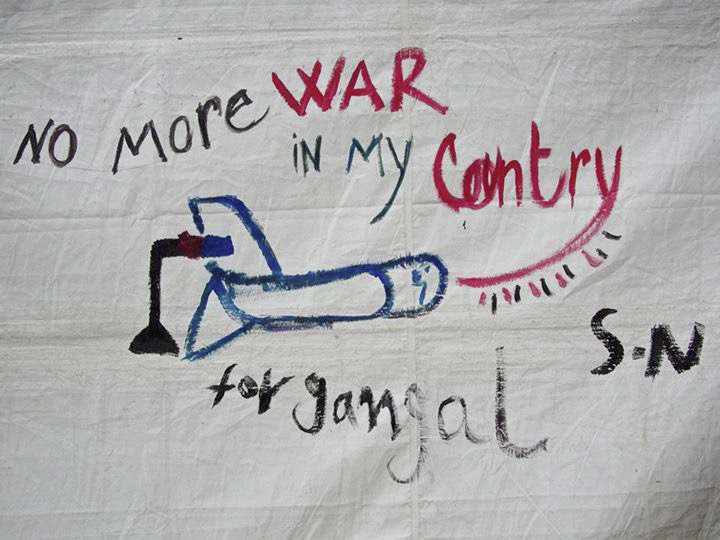Their numbers have quadrupled over the last year as more and more migrants have fled from countries such as Syria, Sudan, Somalia and Eritrea.
Thousands have tried to enter the Channel Tunnel over security fences or stowaway on lorries and ferries travelling across the English Channel, which has seriously disrupted traffic flows.
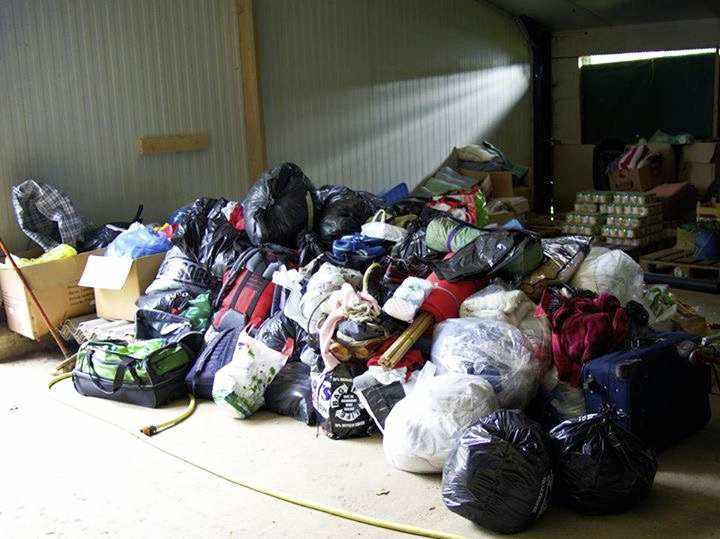
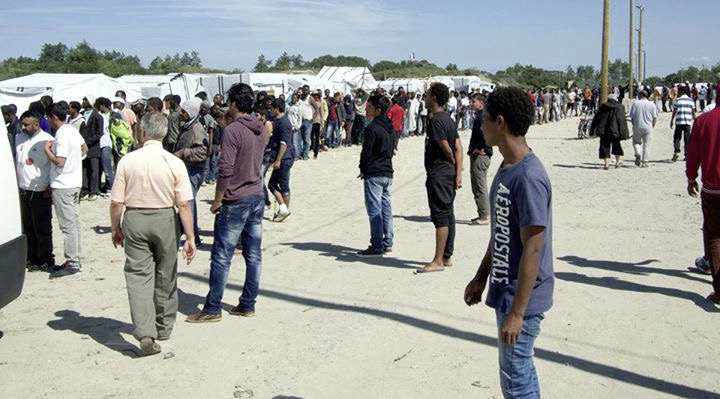
UK Home Secretary Theresa May has raised concerns that asylum migrants may try to enter the UK through other nearby ports, although it is considered unlikely that they will try to access St Malo or Jersey.
There have been some reports of aggressive behaviour from the migrants, including throwing bricks and stones at lorries, but there has also been a great deal of support for them in the UK.
Shadow Health Secretary Andy Burnham this weekend called for the Prime Minister to accept a ‘quota’ of the migrants to help improve its relationship with the EU.
The French government announced on Monday plans to build a permanent camp for 1,500 refugees in Calais, which will open in early 2016.
De La Salle history teacher Bram Wanrooij set up the Jersey Calais Refugee Aid Group after visiting the French port two weeks ago.
The group has already received dozens of donations of tents, clothes, shoes and tins of food from Islanders, some of which were delivered during a relief trip last weekend.
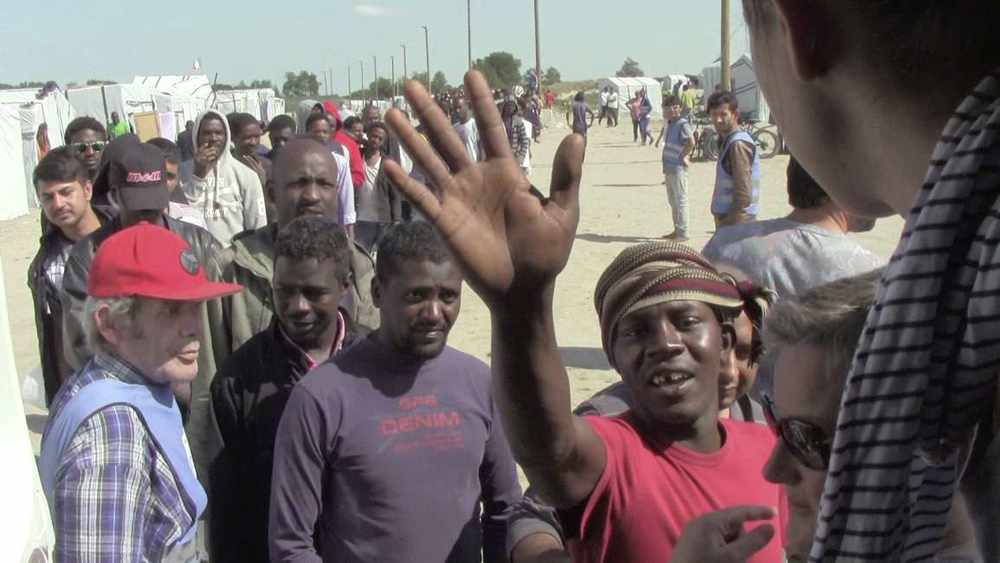
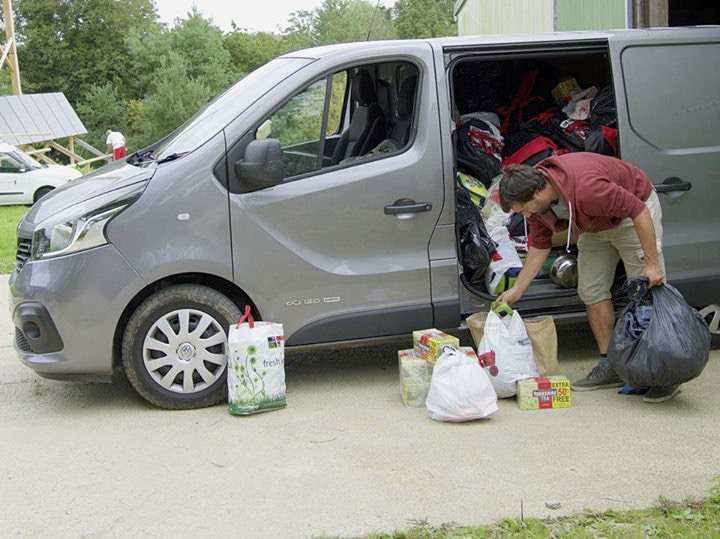
By Bram Wanrooij
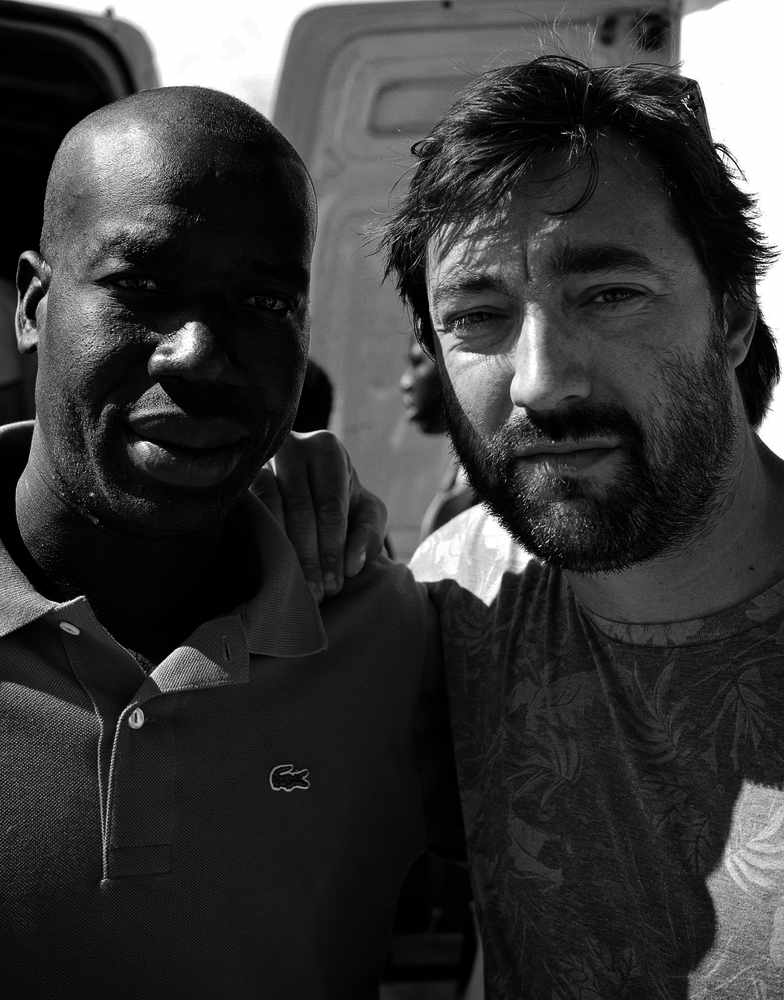
Just six days after our initiative we were back in ‘The Jungle,’ our van jam-packed with donations, even hand-picked Jersey apples and gift bags for the children.
We arrived at Calais at 4.30 am and briefly rested at the home of Francois Guennoc and Maya Konforti, a French couple whose lives are now consumed by aid distribution.
Their house has become a hive of volunteers, mainly from the UK, but sometimes as far away as Romania.
Saturday is food-distribution day and we hook up with volunteers from Italy, Belgium, the UK and with L’Auberge des Migrants to prepare food-bags and load the vehicles. Abdullatif coordinates the group – he is a Syrian refugee who speaks five languages.
The drive is short and we pass through the concrete structures of the Calais ring road. Across the sea the white cliffs of Dover loom. They seem so close. Suddenly we see the tents, endless plastic sheets, squeezed onto the rocky dust between the motorways. Men arise when the convoy of white vehicles enters the camp.
Bertrand, one of the organisers blows a whistle. People appear from everywhere, running, many without shoes. Amazingly, they form a perfect never-ending line, patiently awaiting their turn. Being hungry and desperate, I could have imagined a different type of behaviour.
I see a Sudanese man studying the box of Miso soup he’s just received, opening it and tasting the powder inside. ‘It’s soup,’ I shout. ‘You add hot water.’ He grins, sticking his thumb into the air. I realise he doesn’t have any water supply, let alone a cooker to heat it on.
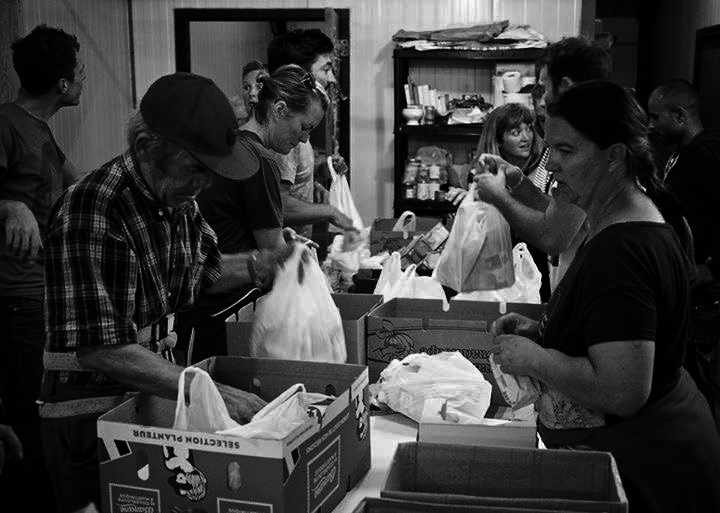
My wife Sophie takes us to the Women’s Refuge, where we get the chance to hand out toys to the youngest children in the camp.
Sophie is hugged by a young mother from Eritrea who sobs. ‘It’s so hard,’ she mutters. ‘I brought my child and now I am here. There is so many of us. You have to be hard, strong, to survive. I need you to pray for us, that we will soon be freed.’
At least they are safe within the gates of the compound but more arrive each day. Carine is responsible for running the refuge on behalf of La Vie Active. She tells us she’s had to reject some women arriving at the camp.
